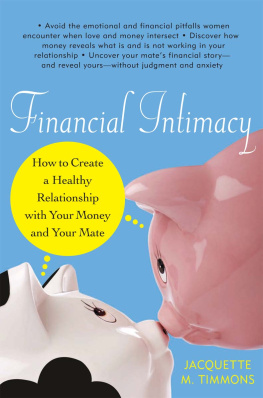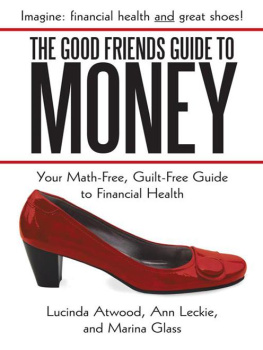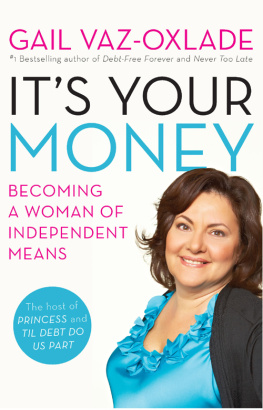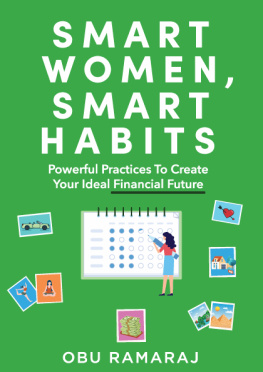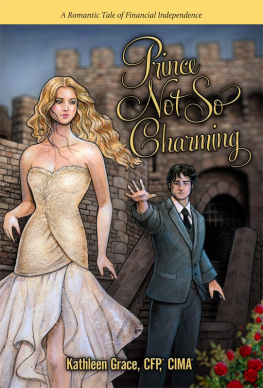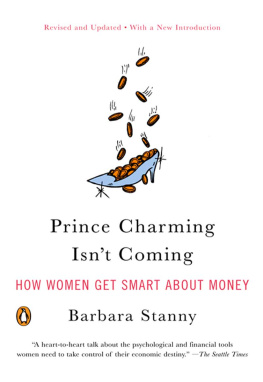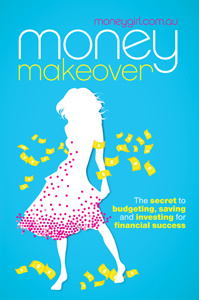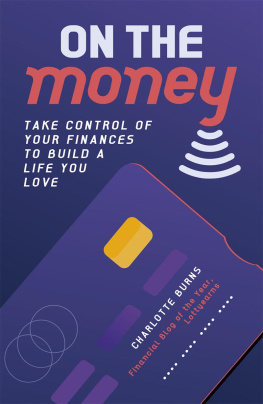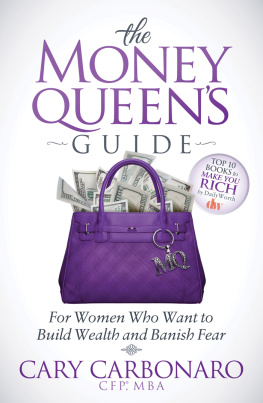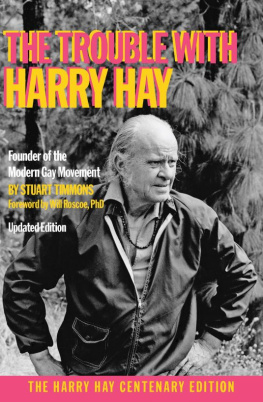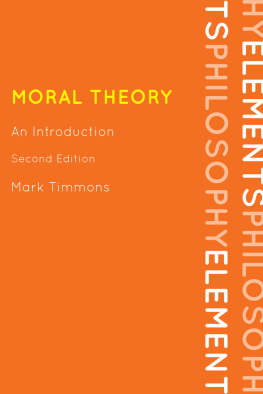
Library of Congress Cataloging-in-Publication Data
Timmons, Jacquette M.
Financial intimacy : how to create a healthy relationship with your money and your mate / Jacquette M. Timmons.
p. cm.
Includes bibliographical references.
ISBN 978-1-55652-775-3 (pbk.)
1. CouplesFinance, Personal. 2. Finance, Personal. 3. CouplesFinance, PersonalCase studies. I. Title.
HG179.T5127 2009
332.02400865dc22
2009012508
Cover design: TG Design
Cover image: Shutterstock
Interior design: Pamela Jurez
2010 by Jacquette M. Timmons
All rights reserved
Published by Chicago Review Press, Incorporated
814 North Franklin Street
Chicago, Illinois 60610
ISBN 978-1-55652-775-3
Printed in the United States of America
5 4 3 2 1
For my mother, Fontilla Timmons, who in words and deeds lives out the mantra she espouses: Dance to your own beat. Mommy, your instruction and ever-present example have sustained me at more times and in more ways than you know.
and
In loving memory of my dear friend, Rayes Deno Moss. The brother I never had and the best guy friend a girl could ever have. Even from heaven, you continue to teach me. I miss you terribly.
Contents
2 Your Story
You, Your Money, and a Little Bit About Your Mate
3 You and Your Mate
A Framework for Intimacy
Introduction
I deal with money and the issues it creates in peoples lives every day. I work as a financial coach and trainer, providing one-to-one counseling and presenting, throughout the country, workshops on money management and the connection between money and relationships. My profession gives me an insiders perspective on how money shows up in peoples lives in general, and how it magnifies the complex and sometimes contradictory nature of romantic relationships in particular.
In 2003, the death of one of my dearest friends, followed by the death of a good friends father two months later, precipitated one of my A-ha! moments about the intersection of love and money. Their deaths brought to my attention a pattern I had not noticed before. Once I became aware of it, I seemed to recognize it everywhere, personally and professionallywith clients, workshop attendees, and friendsand it piqued my curiosity. It became apparent to me that many college-educated, savvy, and otherwise smart professional women do not think about discussing personal finances, in detail and in depth, with their mates.
Nadia, a former coaching client of mine, is one example. On paper, she is the epitome of financial success. She has an exciting career, earns nearly half a million dollars a year, and has a sizable savings account and investment portfolio. Her issues with money have less to do with numbers and more to do with her emotions. She fears ending up like her brother, who is financially strapped and trapped, and doesnt see how this fear is stunting the growth of her relationship with her live-in boyfriend of two years. She never imagined that all the fights she had with him about money stemmed from her fear of becoming like her brother. Through our work, she started to realize that her financial destiny is not set in her DNA. Once she understood that she consciously makes different choices than her brother does, she realized that her fear was unfounded. As a result, she began to communicate differently with her boyfriend about money.
Jaimee, a workshop attendee, is another example. She has been divorced twice and is a bit gun-shy about getting married again. She and her first husband had joint checking and savings accounts. She soon noticed frequent ATM withdrawals and thought it was rather odd, but was satisfied with his answers that he was helping one or another of his needy family members or friends. Eventually she discovered the real reason for his frequent withdrawals was a gambling habit. Her second husband seemed perfectly reasonable when it came to money, but they did not commingle their moneymostly because she was afraid of attaching her lingering debt from her first husband to him. When his business experienced a few lean years, she picked up the slack and worked harder to contribute to the family income. Ironically, as soon as his business took off and was doing well again, he wanted out of the marriage. Now she is single once more and wonders if shell ever be able to trust a man with her heart and her money again.
Even though the details of these womens stories vary, they share a lot in common. Instead of seeing isolated events, I saw women who, despite being college-educated professionals and financially skillful in many regards, made the same financial mistake.
As I widened my focus beyond these women, it became clearer to me that their experiences with money and love were actually a microcosm of many other women, including myself! Our differences are stark: we are women of different partnership statuses (single, living with someone, married, divorced, widowed); we are straight or gay; come from a variety of family backgrounds, races, and religions; have attended college and post-graduate schools across the country; and work in a variety of professions. But so are our similarities, beginning with the fact that our parents efforts and the civil rights and womens movements all played a part in paving the way for us to experience academic, professional, and financial success. Yet many of us are failing when it comes to managing moneys emotional impact on our relationships. How can this be? Whats the cause of this interesting and perplexing duality?
With my personal and professional curiosity amplified, I set out to discover just why my peers and I were ill equipped to talk about money with the very people we should be communicating with, why we were unable to effectively handle the conflict money can cause in our relationships, and perhaps most important, what it takes to create financial intimacy with our mates.
I wondered, if you can bring home the bacon and fry it up in the pan, as that famous commercial during the womens movement advocated, then why does a chasm exist between most twenty-first-century couples concerning finances? And if youre single, like me, what signs do you look for while dating to ensure financial compatibility? What questions do you consider, and when is it appropriate to ask these questions?
From listening to my coaching clients, workshop attendees, and friends, it is apparent that many couples only have surface-level conversations about money. They do not really talk about it, despite sharing pillows, possibly a few tears, and other life-shaping and bonding experiences. Not only are some couples in the dark about how much their respective partners earn, save, invest, and spend, a greater number of couples are clueless about each others financial histories, expectations, fears, and beliefs.
For all the progress weve achieved as a society, we are woefully behind in terms of our attitudes and actions when it comes to couples talking with transparency about money. This is due to the fact that most people grew up in households that considered it gauche to discuss money. You didnt talk about it within your family unit, and it was understood to be distasteful to discuss money with friends or even with your mate! Money was deemed to be a private and individual matter.
The financial concerns and emotional needs of college-educated, professional women born in the 1960s and 1970s have ushered in the need for a new model. Women of this generation have a desire to proactively choose how money will influence their relationships, especially if they have experienced the ill effects that accompany the dont talk about money taboo: broken purses and wounded hearts. But they very often lack the tools to do so.
Next page
